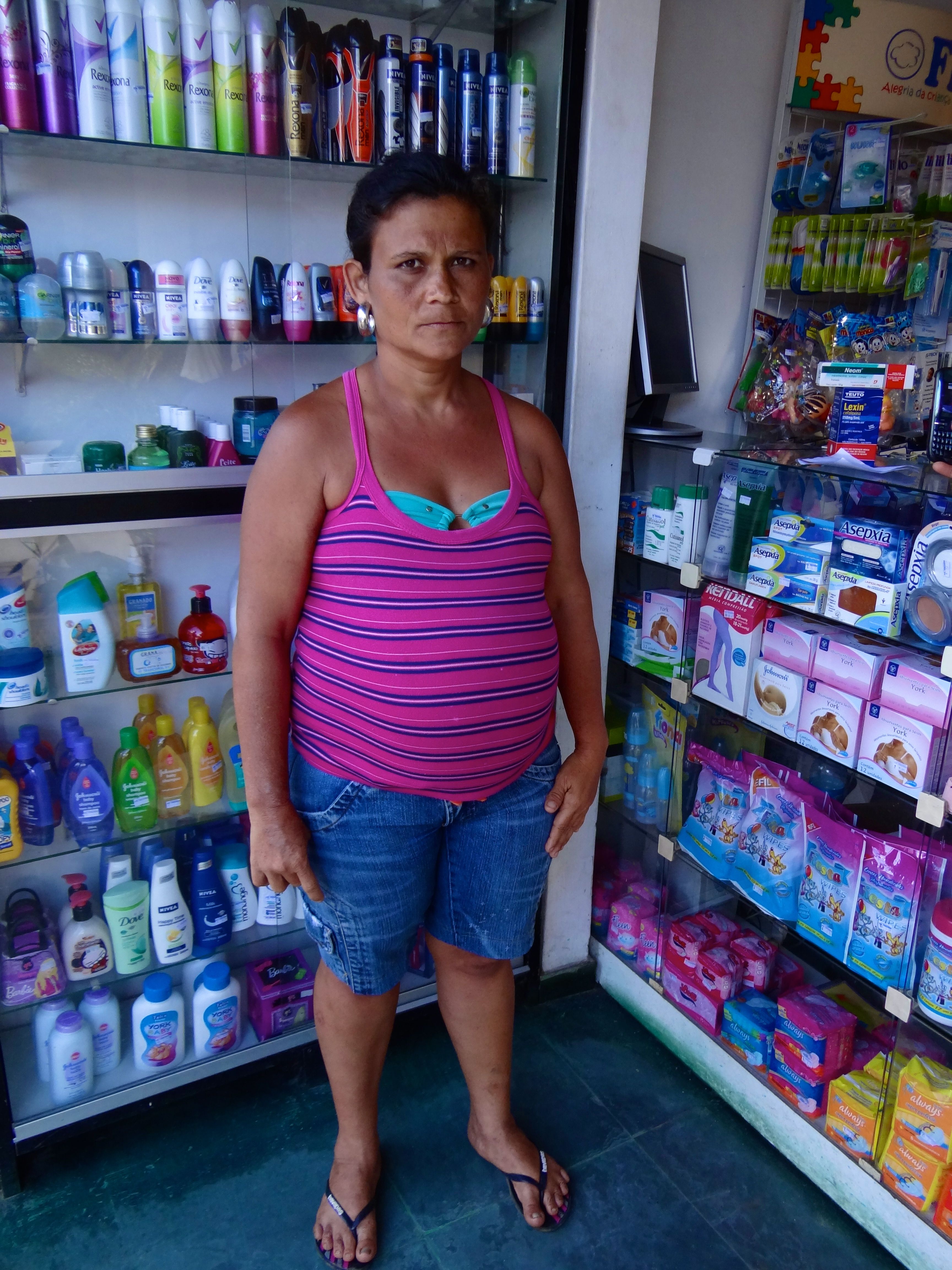Bolsa Familia, the program of conditional cash transfers to poor families in Brazil, is hailed as the most successful social program for poverty alleviation. But can one program be the single magic bullet? Sualine’s story suggests otherwise.
Sualine Fernando dos Santos was at the health center in Sussuarana to get her 7-year-old daughter Miriam vaccinated during an immunization campaign. She also needed to get the medicines prescribed for Miriam’s wounded foot from the health center.
“There is no doctor in this health center for many years. So, when my daughter stepped on a nail and injured her foot I took her to the health center much further away in Sao Marcos,” Sualine explained.
Miriam was prescribed two antibiotics, a tube of neomycin sulphate cream to be applied topically and an oral suspension of cephalexin. Both antibiotics, meant to fight and prevent bacterial infection and to help the wound heal faster, are pretty basic and commonly prescribed. Such drugs are supposed to be available free of cost in the pharmacies of the universal health system of Brazil called Systema Unico de Saude (SUS).
At the health center pharmacy Sualine was told that the medicines were not available. “They wouldn’t dress my daughter’s wounded foot. They didn’t even have painkillers to alleviate the pain from the wounded foot. The only thing that works here is immunization,” Sualine said.
A local person helped Sualine buy the medicines from a nearby pharmacy. The tube of neomycin sulphate cost 6.50 reais and the cephalexin syrup cost 25 reais. A total bill of about 32 reais (about $15). Not cheap. Sualine was hoping to get it free from the health center pharmacy.
Consider this: The amount of money the government gives per child per month under the Bolsa Familia scheme is 32 reais. If the universal health system, or SUS, does not function as it is meant to and does not provide basic medicines free of cost, the 32 reais being given per child for a whole month could be wiped out in a single day with one small episode of a child’s foot getting wounded. In such a scenario, the money given under Bolsa Familia would be of little use to the child in whose name it is being given.
For Bolsa Familia to work as it is meant to, it is important that government programs such as SUS and other social assistance programs that provide subsidized electricity, transport and housing also work efficiently. Otherwise, it would be a typical case of giving money with one hand and taking it away with another.
This is something that senior officials running the Bolsa Familia program are acutely aware of.
“There is a tendency to view cash transfer under Bolsa Familia as a solution to the problem of other services of the government not working. If the health system does not work, and if TB patients cannot get adequate treatment, the solution proposed is to give families of TB patients more cash under Bolsa Familia. Increasing cash assistance is not the answer. The TB program has to be strengthened. Bolsa Familia works because it is a narrowly targeted social assistance program,” explained Bruno Camara Pinto, adviser of the National Secretariat of Citizenship Income (SENARC) of the Ministry of Social Development and Fight Against Hunger in Brazil.
Obviously, though cash transfers have been enhanced for the poorest, the Brazilian government has simultaneously enhanced spending to improve several other public services as part of a multi-pronged strategy to eradicate extreme poverty. Cash transfer is not hailed as the single answer or the “game-changer” to tackle poverty, as claimed by the Indian government.
| Attachment | Size |
|---|---|
| 158.18 KB |





